A
Auto Express
Guest
We’ve spied the third-generation Nissan Qashqai undergoing testing ahead of its full debut towards the end of 2020. When it arrives, the Japanese brand’s latest family SUV will offer fresh competition for the SEAT Ateca, Mazda CX-5 and Kia Sportage.
Although the mule in these images is still wearing heavy camouflage, this is our clearest look yet at the new Qashqai’s styling. It’s difficult to pick out the finer details, but the SUV’s design should echo that of Nissan’s upcoming replacement for the X-Trail.
Following current design trends, the new Qashqai’s headlamps will become slimmer, while its radiator grille will increase in size – and, overall, the SUV should adopt a sportier image, with a more sharply sloping roofline, as hinted by the IMQ concept car revealed at the 2019 Geneva Motor Show.
When it arrives, the Mk3 Qashqai will be a hugely important car for the British motor industry. Not only is the current model one of the most popular crossovers on sale in the UK, it’s also the most mass produced car in Britain, with Nissan’s Sunderland plant producing 257,851 examples in 2019 alone. This all-new version will be built at the same facility, following a £400m investment in the plant, which was revealed by Nissan in March.
The third-generation Qashiqai will also introduce hybrid power to the crossover’s line-up for the first time, thanks to an updated version of the current car’s CMF underpinnings. Nissan is also considering ditching the Qashqai’s range of diesel engines in an effort to lower the SUV’s carbon emissions.
Despite industry trends, Nissan has already confirmed that there won’t be a pure-electric version of the new Qashqai. Pure electric power is being reserved for the Ariya SUV, which is based on the Renault-Nissan Alliance’s all-new CMF-EV underpinnings. The new platform will also underpin a family of electric vehicles spanning the B, C and D segments.
New Nissan Qashqai: hybrid powertrains
Speaking exclusively to Auto Express, Ponz Pandikuthira, Nissan’s European Vice President of Product Planning, said: “a new platform is what’s best to accommodate electrified technologies. It probably won’t include full electrification, because that’s a complete tear-up and the investment required for that would be considerably higher.”
As such, new Nissan Qashqai will likely be offered with a choice of two hybrid powertrains – one featuring Nissan’s innovative ePower system and one sporting Mitsubishi’s plug-in hybrid technology.

2020 Nissan Qashqai - front detail (watermarked)

2020 Nissan Qashqai - front (watermarked)

2020 Nissan Qashqai - rear detail (watermarked)

2020 Nissan Qashqai - rear (watermarked)
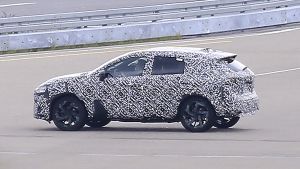
image
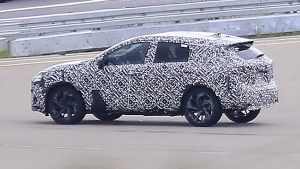
image
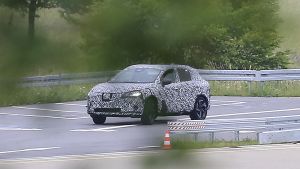
image

image
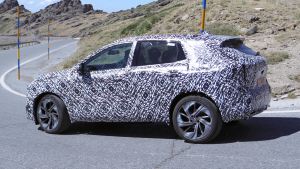
image
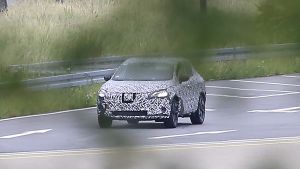
image
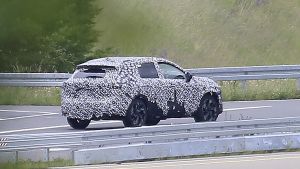
image
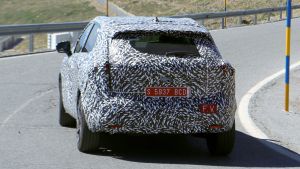
image
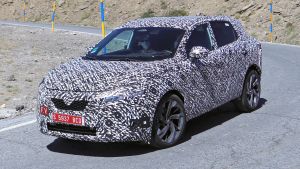
image

image
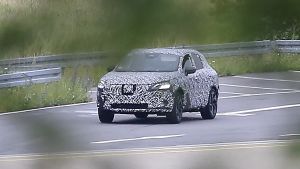
image
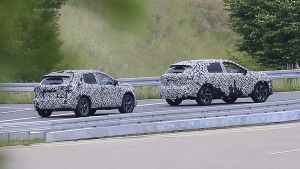
image
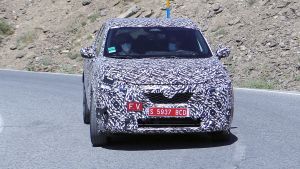
image
The former option is a series hybrid system, which features a petrol engine that works as a generator to charge a battery and power an electric motor. It’s already found in the Japanese delivered version of the Nissan Note, where it has proven popular.
“We’re investigating the ePower technology for Europe,” explained Pandikuthira. “The biggest difference when you do these onboard generator vehicles is highway driving – in Japan, they typically don’t go above 50-65mph.
“Here in Europe, you do 80-85mph on a regular basis. At those speeds, you end up depleting the battery very quickly, so the range extender has to work really hard to keep the energy going and then it goes out of its range of efficiency.”
Pandikuthira also wasn’t convinced about the benefits of plug-in hybrids. He told us: “We’re not pursuing a big plug-in hybrid strategy. On some car lines we’ll try it out, but the business case for plug-in hybrids is not very good. For us, it’s a bridge technology for the next two to four years until battery costs drop to the point where the variable costs of making full EVs prevail.”
With two hybrid models planned for the next Qashqai, insiders have hinted that it’s likely to spell the end of diesel power in Nissan’s SUV. Sales of new diesel cars dropped by almost 32 percent in 2018 – and this trend continued into 2019, with new diesel vehicles declining in popularity by a further 28 percent.
Keen to find out more about electrification? Get the latest electric car news and reviews on our sister site, DrivingElectric.com…
Continue reading...
Although the mule in these images is still wearing heavy camouflage, this is our clearest look yet at the new Qashqai’s styling. It’s difficult to pick out the finer details, but the SUV’s design should echo that of Nissan’s upcoming replacement for the X-Trail.
Following current design trends, the new Qashqai’s headlamps will become slimmer, while its radiator grille will increase in size – and, overall, the SUV should adopt a sportier image, with a more sharply sloping roofline, as hinted by the IMQ concept car revealed at the 2019 Geneva Motor Show.
When it arrives, the Mk3 Qashqai will be a hugely important car for the British motor industry. Not only is the current model one of the most popular crossovers on sale in the UK, it’s also the most mass produced car in Britain, with Nissan’s Sunderland plant producing 257,851 examples in 2019 alone. This all-new version will be built at the same facility, following a £400m investment in the plant, which was revealed by Nissan in March.
The third-generation Qashiqai will also introduce hybrid power to the crossover’s line-up for the first time, thanks to an updated version of the current car’s CMF underpinnings. Nissan is also considering ditching the Qashqai’s range of diesel engines in an effort to lower the SUV’s carbon emissions.
Despite industry trends, Nissan has already confirmed that there won’t be a pure-electric version of the new Qashqai. Pure electric power is being reserved for the Ariya SUV, which is based on the Renault-Nissan Alliance’s all-new CMF-EV underpinnings. The new platform will also underpin a family of electric vehicles spanning the B, C and D segments.
New Nissan Qashqai: hybrid powertrains
Speaking exclusively to Auto Express, Ponz Pandikuthira, Nissan’s European Vice President of Product Planning, said: “a new platform is what’s best to accommodate electrified technologies. It probably won’t include full electrification, because that’s a complete tear-up and the investment required for that would be considerably higher.”
As such, new Nissan Qashqai will likely be offered with a choice of two hybrid powertrains – one featuring Nissan’s innovative ePower system and one sporting Mitsubishi’s plug-in hybrid technology.

2020 Nissan Qashqai - front detail (watermarked)

2020 Nissan Qashqai - front (watermarked)

2020 Nissan Qashqai - rear detail (watermarked)

2020 Nissan Qashqai - rear (watermarked)

image

image

image

image

image

image

image

image

image

image

image

image

image
The former option is a series hybrid system, which features a petrol engine that works as a generator to charge a battery and power an electric motor. It’s already found in the Japanese delivered version of the Nissan Note, where it has proven popular.
“We’re investigating the ePower technology for Europe,” explained Pandikuthira. “The biggest difference when you do these onboard generator vehicles is highway driving – in Japan, they typically don’t go above 50-65mph.
“Here in Europe, you do 80-85mph on a regular basis. At those speeds, you end up depleting the battery very quickly, so the range extender has to work really hard to keep the energy going and then it goes out of its range of efficiency.”
Pandikuthira also wasn’t convinced about the benefits of plug-in hybrids. He told us: “We’re not pursuing a big plug-in hybrid strategy. On some car lines we’ll try it out, but the business case for plug-in hybrids is not very good. For us, it’s a bridge technology for the next two to four years until battery costs drop to the point where the variable costs of making full EVs prevail.”
With two hybrid models planned for the next Qashqai, insiders have hinted that it’s likely to spell the end of diesel power in Nissan’s SUV. Sales of new diesel cars dropped by almost 32 percent in 2018 – and this trend continued into 2019, with new diesel vehicles declining in popularity by a further 28 percent.
Keen to find out more about electrification? Get the latest electric car news and reviews on our sister site, DrivingElectric.com…
Continue reading...
